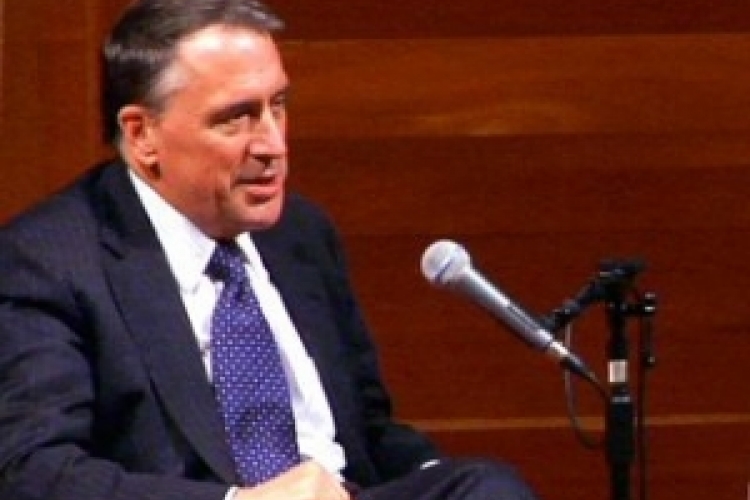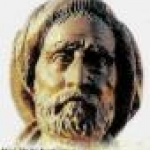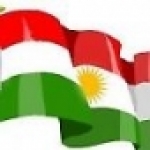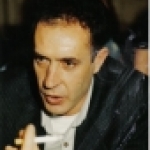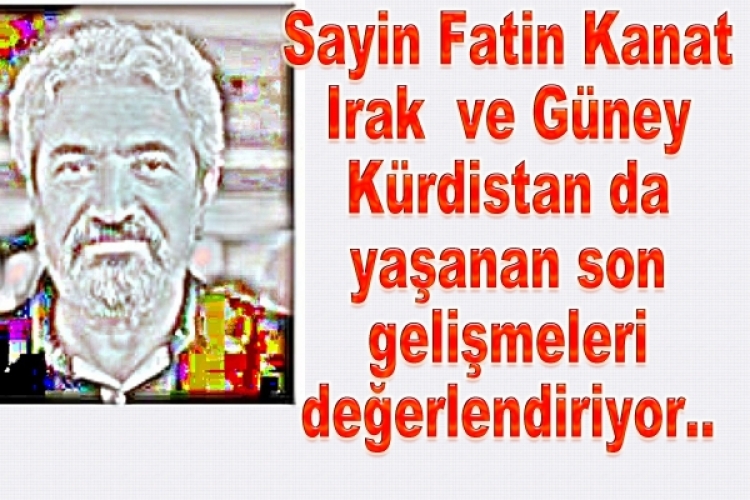Former US Diplomat Says Time is Ripe for Kurdish Independence
Interview by HAWAR ABDULRAZZAQ -
In this interview with Rudaw, former U.S diplomat and adviser to the Kurdistan Regional Government Peter Galbraith says the time is ripe for Kurdish independence thanks to the thriving oil industry, international investment and the fact that Kurds are America’s only reliable ally in the volatile region. Galbraith says Iraqi Prime Minister Nuri al-Maliki is not following the constitution or respecting the rights of Kurdistan.
Rudaw: Do you think the constitution can prevent the resurgence of a dictatorship in Iraq?
Peter Galbraith: The constitution establishes a weak central government, enshrines power-sharing among Iraq’s different peoples (Shia, Sunnis and Kurds) at the center and gives the Kurdistan Region de facto independence. As such, the constitution is designed to prevent the reestablishment of a powerful centralized state that has led to dictatorship in the past. But no constitution can prevent dictatorship. That is up to the people.
Rudaw: Do you think constitutions matter in the Middle East region? In these countries, the ruler often has all the authority.
Peter Galbraith: Yes, they matter. But, it is up to the people and their leaders to enforce the constitution.
Rudaw: Right now, Iraq is in political turmoil and most parties accuse PM Nuri al-Maliki of violating the constitution. Do you think he has violated the constitution?
Peter Galbraith: Clearly, he is not following the constitution. He is not respecting Kurdistan’s rights, including those over natural resources, and he has not held the constitutionally required referendum on Kirkuk and other disputed areas.
Rudaw: Kurdish leaders blame Maliki for not sharing power and consolidating all of it in his own hands. Do you think those accusations are correct?
Peter Galbraith: Yes. They are correct.
Rudaw: Barzani says that Maliki is only killing time and doesn’t want to solve important issues such as Article 140 regarding the disputed territories and the oil and gas issue. He also says that if the situation continues like this, he will let the people of Kurdistan decide their own future through a referendum. Does the Iraqi constitution give the Kurds the right to separate from Iraq?
Peter Galbraith: The Kurds agreed to stay in Iraq on the basis of the constitution in its entirety. If the Baghdad government does not keep its part of the bargain, then the basis for Kurdistan’s continued membership in Iraq no longer exists.
Rudaw: When the constitution was written, did you feel it would solve issues such as Article 140 and the Peshmerga?
Peter Galbraith: I knew these issues would be difficult because the mindset of those who wanted a centralized Iraq did not change. But, I hoped the constitution would be followed.
Rudaw: When the Balkan countries gained independence, you were the U.S. ambassador in that region. Based on your experience, do you think now is the right time for Kurdistan to become independent from Iraq?
Peter Galbraith: Yes. The Kurds tried being part of Iraq for 90 years and Iraq has failed them. I learned in the Balkans that there is something worse than the breakup of a country, and that is trying to keep people in a country against their will.
Rudaw: In your opinion, what are the obstacles to a Kurdish state in Iraqi Kurdistan?
Peter Galbraith: President Massoud Barzani and Prime Minister Nechirvan Barzani have eliminated the most important obstacles to full independence. They have developed a close political and economic relationship with Turkey, they have created an oil industry in Kurdistan which provides the financial basis for independence and they have encouraged other international investments in Kurdistan. They have shown that Kurdistan is America’s only reliable and democratic ally in Iraq and in a volatile region.
Rudaw: Do you think that, in the future, the U.S. will support an independent Kurdistan?
Peter Galbraith: The U.S. usually supports the status quo and probably will not support secession until after it takes place. The U.S. has no friend as good as the Kurds so it will have no alternative but to accept Kurdistan’s independence once it takes place.
Rudaw: Kurdish leaders were happy when U.S. oil giant ExxonMobil came to Kurdistan. What is your view on that issue?
Peter Galbraith: There is no greater vote of confidence in Kurdistan’s oil industry than to have the world’s largest oil company invest there.
Rudaw: What do you think of Kurdistan’s oil policy?
Peter Galbraith: It makes the centuries-old dream of self-government a reality and provides great benefits to the people of Kurdistan.
Rudaw: Generally, the Kurds admire your support for them, but three years ago you were linked to Kurdish oil contracts which some Western media called scandalous. Can you elaborate on that?
Peter Galbraith: Before 2004, Kurdistan was entirely dependent on Baghdad and foreign aid. I helped bring the first oil company to Kurdistan and, as a result, Kurdistan now has a thriving oil industry. For the first time, the people of Kurdistan benefit from their own resources and the Kurdistan government has the resources to run its own affairs. Some Western media criticized my work because they are deeply attached to the bankrupt idea of a centralized Iraq where everything is controlled by Baghdad. I am proud of my contribution to a self-governing and prosperous Kurdistan.

